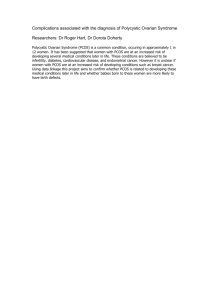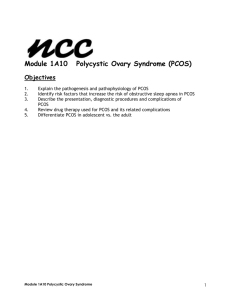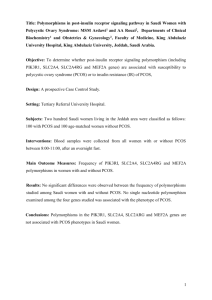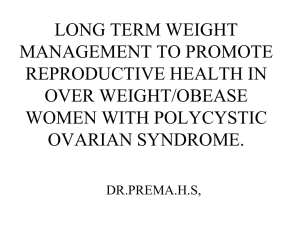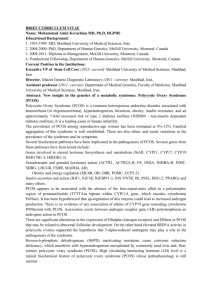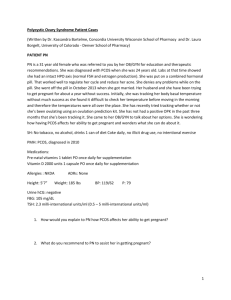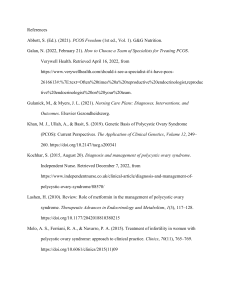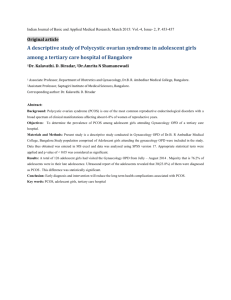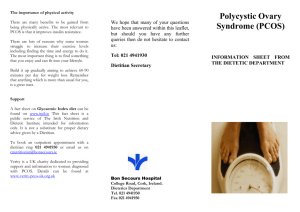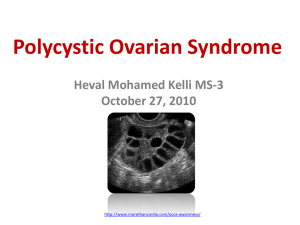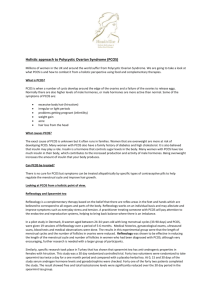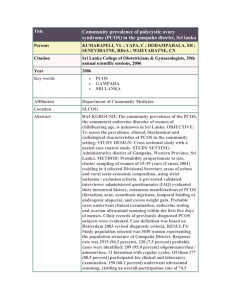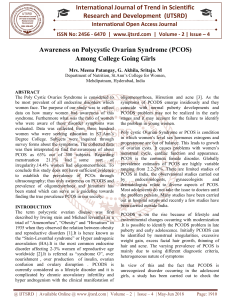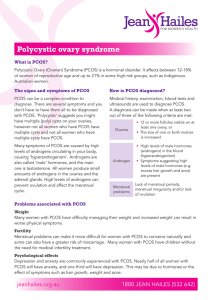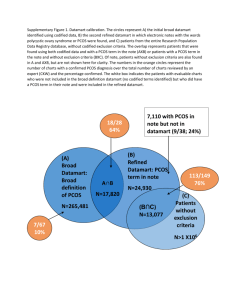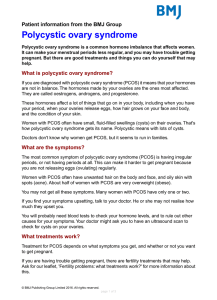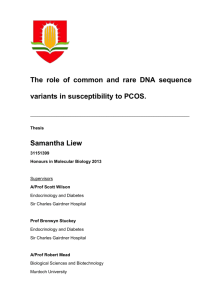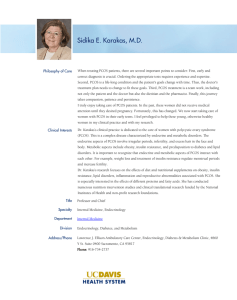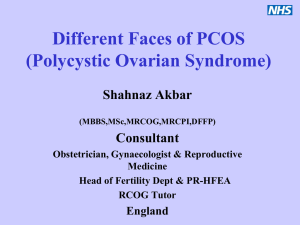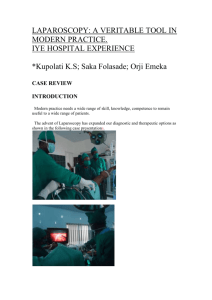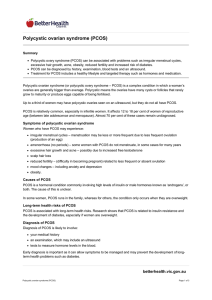Polycystic Ovarian Syndrome (PCOS)
advertisement
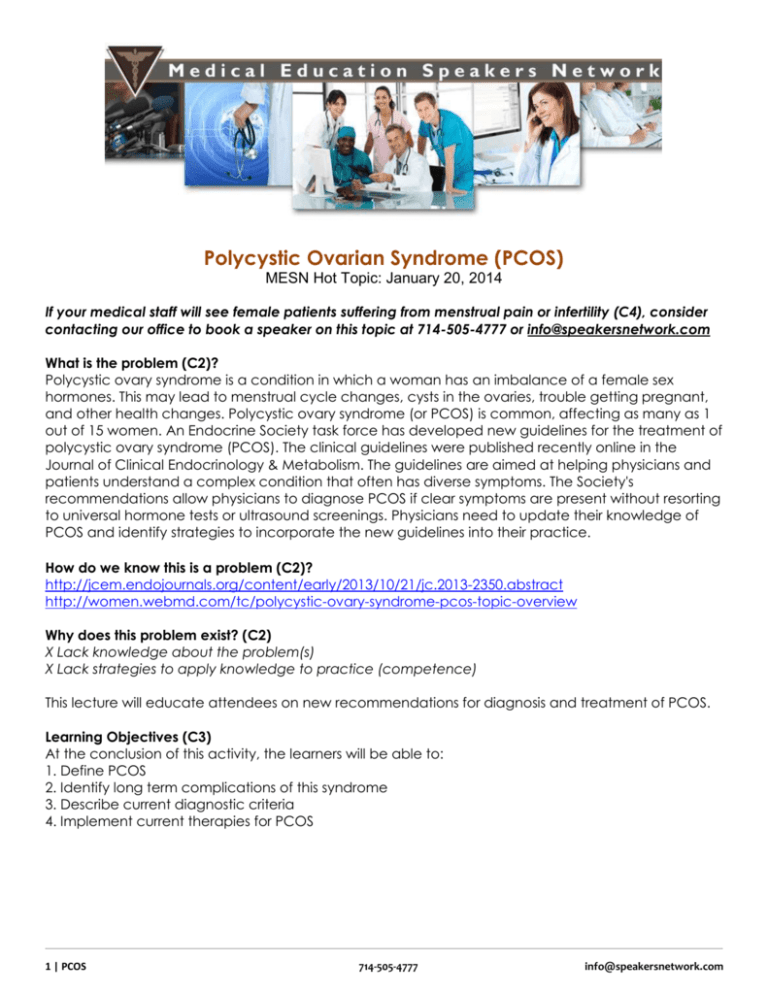
Polycystic Ovarian Syndrome (PCOS) MESN Hot Topic: January 20, 2014 If your medical staff will see female patients suffering from menstrual pain or infertility (C4), consider contacting our office to book a speaker on this topic at 714-505-4777 or info@speakersnetwork.com What is the problem (C2)? Polycystic ovary syndrome is a condition in which a woman has an imbalance of a female sex hormones. This may lead to menstrual cycle changes, cysts in the ovaries, trouble getting pregnant, and other health changes. Polycystic ovary syndrome (or PCOS) is common, affecting as many as 1 out of 15 women. An Endocrine Society task force has developed new guidelines for the treatment of polycystic ovary syndrome (PCOS). The clinical guidelines were published recently online in the Journal of Clinical Endocrinology & Metabolism. The guidelines are aimed at helping physicians and patients understand a complex condition that often has diverse symptoms. The Society's recommendations allow physicians to diagnose PCOS if clear symptoms are present without resorting to universal hormone tests or ultrasound screenings. Physicians need to update their knowledge of PCOS and identify strategies to incorporate the new guidelines into their practice. How do we know this is a problem (C2)? http://jcem.endojournals.org/content/early/2013/10/21/jc.2013-2350.abstract http://women.webmd.com/tc/polycystic-ovary-syndrome-pcos-topic-overview Why does this problem exist? (C2) X Lack knowledge about the problem(s) X Lack strategies to apply knowledge to practice (competence) This lecture will educate attendees on new recommendations for diagnosis and treatment of PCOS. Learning Objectives (C3) At the conclusion of this activity, the learners will be able to: 1. Define PCOS 2. Identify long term complications of this syndrome 3. Describe current diagnostic criteria 4. Implement current therapies for PCOS 1 | PCOS 714-505-4777 info@speakersnetwork.com Educational Delivery Method (C5): Didactic lecture Question and answer session Case presentations Rationale for Delivery Method (C5): Knowledge conveyed in a short time Application of knowledge to potential practice Professional Competencies (C6): □ Patient Care - Provide care that is compassionate, appropriate and effective treatment for health problems and to promote health. □ Medical Knowledge - Demonstrate knowledge about established and evolving biomedical, clinical and cognate sciences and their application in patient care. □ Interpersonal and Communication Skills - Demonstrate skills that result in effective information exchange and teaming with patients, their families and professional associates (e.g. fostering a therapeutic relationship that is ethically sounds, uses effective listening skills with non-verbal and verbal communication; working as both a team member and at times as a leader). 2 | PCOS 714-505-4777 info@speakersnetwork.com
